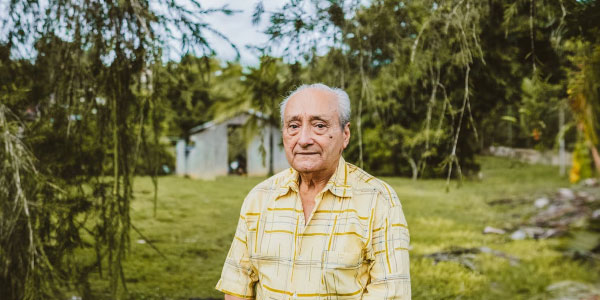Dysthymia

Dysthymia, sometimes referred to as chronic depression, is a less severe form of depression. With dysthymia, the depression symptoms can linger for a long period of time, perhaps two years or longer. Those who suffer from dysthymia are usually able to function adequately but might seem consistently unhappy.
What Causes Dysthymia?
Experts are not sure what causes dysthymia. This form of chronic depression is thought to be related to brain changes that involve serotonin, a chemical or neurotransmitter that aids your brain in coping with emotions. Major life stressors, chronic illness, medications, and relationship or work problems may also increase the chances of dysthymia.
What Are the Signs and Symptoms of Dysthymia?
The symptoms of dysthymia are the same as those of major depression but not as intense and include the following:
- Persistent sad or empty feeling
- Difficulty sleeping (sleeping too much or too little)
- Insomnia (early morning awakening)
- Feelings of helplessness, hopelessness, and worthlessness
- Feelings of guilt
- Loss of interest or the ability to enjoy oneself
- Loss of energy or fatigue
- Difficulty concentrating, thinking or making decisions
- Changes in appetite (overeating or loss of appetite)
- Observable mental and physical sluggishness
- Persistent aches or pains, headaches, cramps, or digestive problems that do not ease even with treatment
- Thoughts of death or suicide
Is Dysthymia Common in the U.S.?
According to the National Institute of Mental Health, approximately 10.9 million Americans aged 18 and older are affected by dysthymia. While not disabling like major depression, dysthymia can keep you from feeling your best and functioning optimally. Dysthymia can begin in childhood or in adulthood and seems to be more common in women.
How Is Dysthymia Diagnosed?
A mental health specialist generally makes the diagnosis based on the person's symptoms. In the case of dysthymia, these symptoms will have lasted for a longer period of time and be less severe than in patients with major depression.
With dysthymia, your doctor will want to make sure that the symptoms are not a result of substance abuse or a medical condition, such as hypothyroidism. Also, the depression and other symptoms should cause clinically significant distress or impairment in social, occupational, or other important areas of your life.
If you are depressed and have had depressive symptoms for more than two weeks, see your doctor or a psychiatrist. Your provider will perform a thorough medical evaluation, paying particular attention to your personal and family psychiatric history.
There is no blood, X-ray or other laboratory test that can be used to diagnose dysthymia.
How Is Dysthymia Treated?
While dysthymia is a serious illness, it’s also very treatable. As with any chronic illness, early diagnosis and medical treatment may reduce the intensity and duration of depression symptoms and also reduce the likelihood of a relapse.
To treat dysthymia, doctors may use psychotherapy (counseling), medications such as antidepressants, or a combination of these therapies. Often, dysthymia can be treated by a primary care physician.
What Is Psychotherapy?
Psychotherapy (or talk therapy) is used in dysthymia and other mood disorders to help the person develop appropriate coping skills to deal with everyday life. Psychotherapy can also help increase compliance to medication and healthy lifestyle habits, as well as help the patient and family understand the mood disorder. You may benefit from one-on-one therapy, family therapy, group therapy, or a support group with others who suffer with chronic depression.
How Do Antidepressants Help Ease Dysthymia?
There are different classes of antidepressants available to treat dysthymia. Your doctor will assess your physical and mental health, including any other medical condition, and then find the antidepressant that is most effective with the least side effects.
Antidepressants may take several weeks to work optimally. They should be taken for at least six to nine months after an episode of chronic depression. In addition, it takes several weeks to go off an antidepressant, so let your doctor guide you if you choose to stop the drug.
Some commonly used antidepressants include:
- Selective serotonin reuptake inhibitors (SSRIs) -- Celexa, Lexapro, Prozac, Luvox, Paxil, Zoloft
- Serotonin norepinephrine reuptake inhibitors – Effexor, Cymbalta, Pristiq
- Tricyclic antidepressants – Elavil, Asendin, Anafranil, Norpramin, Adapin, Sinequan, Tofranil
- Monoamine oxidase (MAO) inhibitors – Marplan, Nardil, Parnate,EMSAM
- Trazodone – Desyrel
- Other antidepressants - Mirtazapine, Bupropion
Sometimes antidepressants have uncomfortable side effects. As an example, the SSRIs may cause mild insomnia and reduced sex drive. That’s why you have to work closely with your doctor to find the antidepressant that gives you the most benefit with the least side effects.
Are There Other Treatments Available for Dysthymia?
Your doctor can explain other treatments for dysthymia and major depression. Some people with seasonal depression find good relief with light therapy. Electroconvulsant therapy (ECT) is another treatment that may be used if major depression isn't responding to antidepressant medications. If you are experiencing manic (highly elated) episodes along with the chronic depression, your doctor may want to try a mood-stabilizing drug, such as lithium, or an anticonvulsant.
What Else Can I Do to Feel Better?
Getting an accurate diagnosis and effective treatment is a major step in feeling better with chronic depression. In addition, ask your doctor about the benefits of healthy lifestyle habits such as eating a well-balanced diet, getting regular exercise, avoiding alcohol and smoking, and being with close friends and family members for strong social support. These positive habits are also important in improving mood and well-being.
Can Dysthymia Worsen?
It’s not uncommon for a person with dysthymia to also experience major depression at the same time -- swinging into a major depressive episode and then back to a more mild state of dysthymia. This is called double depression. That’s why it’s so important to seek an early and accurate medical diagnosis. Your doctor can then recommend the most effective treatment to help you feel yourself again.
Information for this article was provided by WebMD.


























